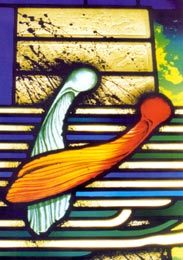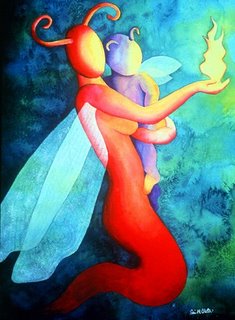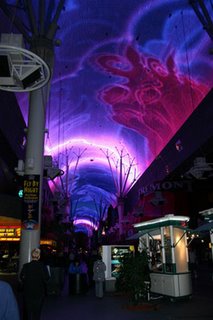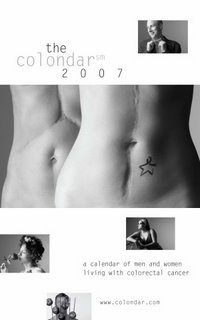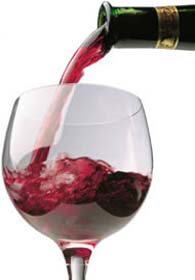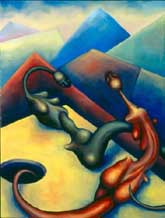
...the artifacts of my life have a home.
My working life began with museum artifacts - studying them, documenting them, interpreting them, and finally displaying them so that the general public could share some of the information I had discovered. The term
artifacts - in the context of museums, archives, and galleries - refers to elements of the collections preserved according to the mission statement of the institution. Those elements include objects, images, and manuscripts.
It wasn't long after beginning my museum career that I was asked to assume responsibilities for an IBM personal computer at
The Seagram Museum which was networked with 9 other museums, galleries, and archives in Waterloo region and Wellington county who had agreed to store the information about the artifacts in their collections in a central repository, a database management system at the University of Waterloo called
SPIRES (
Stanford
Physics
Information
REtrieval
System). The Waterloo-Wellington Museum Computer Network was initiated by the
Museum and Archive of Games, located at the University of Waterloo, to coordinate the activities of registrars, librarians, and collections managers from the participating institutions. SPIRES was used to create, administer, and share our collections management records.
As my computer-related responsibilities grew, I quickly came to understand how the terms
objects and
artifacts had meaning within the world of software developers. In that context, the terms referred to software elements with properties and methods comparable to their real-world counterparts. The two worlds of computers and museums were colliding and providing new opportunities to expand my horizons.
Some colleagues in the
Ontario Museum Association and I created an ad hoc business entity simply called
Artifax in order to begin to address some of the opportunities for using personal computers and networks in the museum field. We designed software for both Apple- and IBM-based systems to provide information paralleling traditional publications like the
Museum and Archives Supplies Handbook. Later on, I took over sole proprietorship of Artifax and eventually ran a full-time business designing custom software applications for clients primarily located in the Waterloo region and Wellington county.
Storage was always a problem, not just for museums, archives, and galleries, but for other companies and for me as an individual. There was never enough storage for the massive amounts of information that could be stored about museum artifacts or about one's own life. Music, photographs, video, text, structured or unstructured - there never was a problem of having too much storage capacity.
Today, I work as an IT Manager and have helped establish another regional interest group for IT Pros called
WWITPRO, a user group for IT professsionals using Microsoft software. Storage of documents related to business and to the user group is always a matter of setting priorities and deleting or archiving older documents.
At home, every member of the family has a personal computer, an iPod, and a cell phone (two of us also have digital cameras). Still, not enough storage. The situation is better than ever before, I have to admit that much. All the music and photographs stored on my notebook computer are also to be found on my 60GB iPod. Even my Pocket PC has a 2GB mini SD card intended to carry copies of all my mind maps and other personal and business information critical to daily functioning.
Mind maps especially make organizing my life easier, but they too demand more and more storage.
But, oh would a 750GB hard drive make life easier! Backup of the entire family's music files, all our digital and scanned photographs, all the family videos generated over 3 generations, geneological data and other family-related documents, not to mention copies of essays, blogs, portfolios and video game data.
One thing I would really like to delve into during 2007 is podcasting and video blogging, something which is not possible given the storage limitations of my current hardware. Personally, apart from the iPod, the Pocket PC, and the digital camera, I have 2 notebook computers and one desktop computer available to me at home. Each of my sons has more hard drive capacity on their desktop computers, but I don't feel right in asking them to share that disk space with me. But audio and video data storage and editing software consumes massive amounts of storage. A 750GB hard drive would certainly make entry into that world a genuine probability.
Seagate contest
 I am happy to bid adieu to 2006. Not ecstatically happy, just pleasantly ready to turn the page on a very difficult year, one in which I received more hospital and cancer-centre care than I ever thought possible earlier in my life.
I am happy to bid adieu to 2006. Not ecstatically happy, just pleasantly ready to turn the page on a very difficult year, one in which I received more hospital and cancer-centre care than I ever thought possible earlier in my life.







 Cancer leads one to odd connections.
Cancer leads one to odd connections.



 Yesterday, as the title for today's entry implies, I was at the Microsoft
Yesterday, as the title for today's entry implies, I was at the Microsoft 
